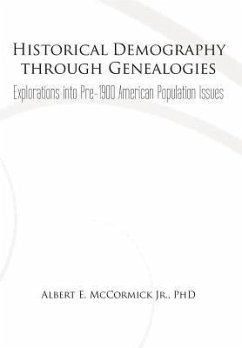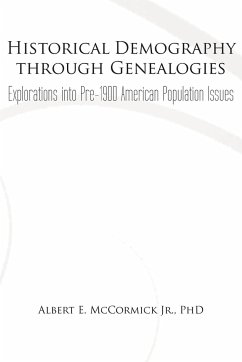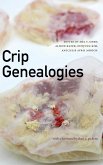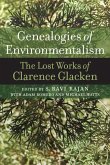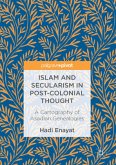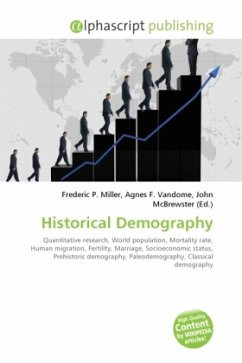Demographic trends and patterns provide valuable insights into social structure and behavior, both past and present, and are particularly useful in gauging the effect and extent of social change. While national, state, and local records of pre-1900 demographic information exist, they are often incomplete, inaccurate, or missing altogether. An alternative source of information is genealogical material, which can be used to cross-check the accuracy of demographic directions generalized from locational records. Historical Demography through Genealogies makes extensive use of genealogical information to measure pre-1900 trends in various vital statistics. In a series of research inquiries, author Albert E. McCormick pursues the relationship of these demographic processes to the social structure, values, and customs of the times. Individual chapters focus on ¿ fertility, marriage, and mortality; ¿ childlessness; ¿ bachelor/spinsterhood and remarriage; ¿ infant mortality and child-naming; ¿ occupational/structural mobility, including the status of women. McCormick's results shed further light upon demographic processes as they existed before the advent of reliable national records, adding intriguing comprehensions of nineteenth century society and social life. Demographers, sociologists, social historians, and students of social change will find Historical Demography through Genealogies a valuable, comprehensive addition to their research collection.
Hinweis: Dieser Artikel kann nur an eine deutsche Lieferadresse ausgeliefert werden.
Hinweis: Dieser Artikel kann nur an eine deutsche Lieferadresse ausgeliefert werden.

